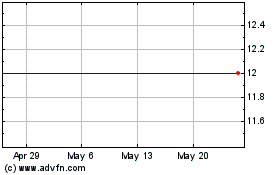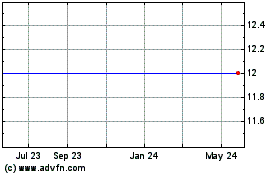Forest Discusses Disclosure of Citalopram Clinical Trial Data in Children and Adolescents
June 24 2004 - 5:12PM
PR Newswire (US)
Forest Discusses Disclosure of Citalopram Clinical Trial Data in
Children and Adolescents NEW YORK, June 24 /PRNewswire-FirstCall/
-- Forest Laboratories, Inc. (NYSE:FRX) wishes to provide
additional information regarding the dissemination of the clinical
trial results of two studies of its antidepressant Celexa(R)
(citalopram HBr) in the treatment of children and adolescents.
Citalopram is not approved for use in children or adolescents and
has not been promoted by Forest for use in these populations.
(Logo: http://www.newscom.com/cgi-bin/prnh/20001011/FORESTLOGO )
There are two placebo-controlled studies of citalopram in the
treatment of pediatric and/or adolescent depression. These studies
include a European trial in both hospitalized and outpatient
adolescents conducted by H. Lundbeck A/S (the Danish company that
developed citalopram), which did not show efficacy versus placebo,
and a U.S. trial in child and adolescent outpatients, conducted by
Forest, the results of which showed efficacy versus placebo. The
U.S. study was published in June 2004 in the American Journal of
Psychiatry. Although no published peer-reviewed reference of the
European citalopram pediatric study is currently available, the
results of this study were disclosed on several occasions to the
scientific community in various formats prior to the June 2004
publication of the U.S. study(1). These disclosures included
information from submissions by Forest or Lundbeck to the U.S. and
United Kingdom (U.K.) regulatory authorities, both of which posted
summary results on the Internet. H. Lundbeck A/S also has advised
Forest that the principal investigator of the European study is
preparing a report for publication. Given the current increased
interest in industry publication practices as well as outstanding
questions about the role of antidepressants in the pediatric
populations, questions about the availability of these results have
been raised. It is crucial in this context to point out that
results of the European study were not hidden but were disclosed
and available. In addition, the results may not be comparable to
the U.S. study because of contrasting trial designs and patient
populations. Modern depression trials typically utilize a study
design and patient selection criteria that will most objectively
define the effect of a medication. Greater accuracy is accomplished
by studying patients under conditions in which many of the known
social and medical factors that can affect patients' response can
be prospectively identified and controlled for, so as to separate
those factors from the determination of the actual drug effect.
Carefully balancing the patient groups is important to obtain a
proper interpretation of the results. This approach is commonly
used in today's antidepressant trials and was used in the U.S.
citalopram trial. However, in the European trial, both hospitalized
patients and outpatients were allowed to enroll, many of whom had a
history of more complicated depressive disorders. The trial
analysis could not be adjusted for such differences in the patients
between the drug treated or placebo groups, which makes it more
difficult to evaluate the drug's effect as well as to establish
comparability of the results of this study to those of the U.S.
trial. With respect to safety, Forest believes that its overall
analysis of the clinical trial data, including both the
placebo-controlled pediatric citalopram studies, shows that there
is no increased risk of suicidality or worsening of depression
associated with citalopram therapy. In addition, there were no
suicides in these studies. The FDA is actively reviewing the data
it has for pediatric studies involving a number of different
antidepressants and in the interim, and in accordance with the
FDA's request of all anti-depressant manufacturers, Forest has
included in its labeling for Celexa additional information
regarding suicidality(2). Forest believes there was nothing unusual
or incorrect about the disclosure of the results of the two
studies. We recognize the complexity involved in determining the
role of antidepressants in the treatment of pediatric depression
especially given the difficulty of diagnosing and evaluating
response in this group of patients. We are also aware of interest
in augmenting the exchange of scientific information. Therefore,
today, Forest has issued a press release with respect to a
pediatric study just completed on the safety and efficacy of our
antidepressant Lexapro(R) (escitalopram oxalate) based upon initial
analyses of that study. Forest will work with the government, the
scientific community and the industry to evolve generally accepted
standards and practices supporting the scientific exchange of
information, particularly with regard to the treatment of children
and adolescents suffering from depression. About Forest
Laboratories and Its Products Forest Laboratories' growing line of
products includes: Lexapro(R), an SSRI antidepressant indicated for
the initial and maintenance treatment of major depressive disorder
and for generalized anxiety disorder; Celexa(R), an antidepressant;
Namenda(R), an N-methyl-D-aspartate (NMDA)-receptor antagonist
indicated for the treatment of moderate to severe Alzheimer's
disease; Tiazac(R), a once-daily diltiazem, indicated for the
treatment of angina and hypertension; Benicar(R),* an angiotensin
receptor blocker indicated for the treatment of hypertension;
Benicar HCT(TM), an angiotensin receptor blocker and diuretic
combination product indicated for the second-line treatment of
hypertension; and Aerobid(R), an inhaled steroid indicated for the
treatment of asthma. *Benicar(R) is a registered trademark of
Sankyo Pharma, Inc. Except for the historical information contained
herein, this release contains "forward-looking statements" within
the meaning of the Private Securities Reform Act of 1995. These
statements are subject to risks and uncertainties that affect our
business, including risk factors listed from time to time in the
Company's SEC reports, including the Company's Annual Report on
Form 10-K for the fiscal year ended March 31, 2004. Actual results
may differ materially from those projected. (1) Following is a
detailed account of the prior disclosure of the European pediatric
results: * October 16, 2003 -- Forest Laboratories discusses
topline efficacy results and presents a detailed safety analysis of
both the U.S. and European citalopram pediatric depression trials
at the annual meeting of the American Academy of Child and
Adolescent Psychiatry. * October 30, 2003 -- Medical textbook in
Danish titled, "Children and Adolescents with Depression" that
referenced the efficacy results of both citalopram studies. *
December 10, 2003 -- Study results from both citalopram pediatric
depression trials, that were previously submitted by H. Lundbeck
A/S to The Medicines and Healthcare Products Regulatory Agency in
the U.K., were posted on their website:
http://medicines.mhra.gov.uk/. * January 3, 2004 -- The British
Medical Journal published an editorial titled, "Treatment of Major
Depressive Disorder in Children and Adolescents." The editorial
discussed the United Kingdom's Committee of Safety in Medicines
evaluation of these studies. * January 13, 2004 -- The U.S. Food
and Drug Administration (FDA) posted on its public website a
summary of their evaluation of these trials for inclusion in the
February 2, 2004, meeting of the Psychopharmacologic Drugs Advisory
Committee and the Pediatric Subcommittee of the Anti-Infective
Drugs Advisory Committee. * April 22, 2004 -- The European study's
principle investigator of the trial presented information about the
European citalopram pediatric depression trial during the annual
meeting of the Scandinavian College of Neuropsychopharmacology. *
April 24, 2004 -- The Lancet published an article titled,
"Selective Serotonin Reuptake Inhibitors in Childhood Depression:
systematic review of published versus unpublished data," which
included a review of both citalopram pediatric depression studies.
(2) Celexa Labeling: Patients with major depressive disorder, both
adult and pediatric, can experience worsening of their depression
and/or the emergence of suicidal ideation and behavior
(suicidality), whether or not they are taking antidepressant
medications, and this risk may persist until significant remission
occurs. Although no causal role for antidepressants in inducing
such behaviors has been established, patients being treated with
antidepressants should be observed closely for clinical worsening
and suicidality, especially at the beginning of a course of drug
therapy, or at the time of dose changes, either increases or
decreases.
http://www.newscom.com/cgi-bin/prnh/20001011/FORESTLOGODATASOURCE:
Forest Laboratories, Inc. CONTACT: Charles E. Triano, Vice
President - Investor Relations of Forest Laboratories, Inc.,
+1-212-224-6714, Web site: http://www.frx.com/
http://medicines.mhra.gov.uk/
Copyright
Forest Road Acquisition (NYSE:FRX)
Historical Stock Chart
From Sep 2024 to Oct 2024

Forest Road Acquisition (NYSE:FRX)
Historical Stock Chart
From Oct 2023 to Oct 2024
